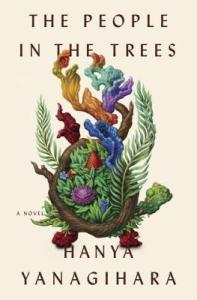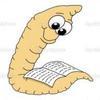
What’s it all about?:
In 1950, a young doctor called Norton Perina signs on with the anthropologist Paul Tallent for an expedition to the remote Micronesian island of Ivu’ivu in search of a rumored lost tribe. They succeed, finding not only that tribe but also a group of forest dwellers they dub “The Dreamers,” who turn out to be fantastically long-lived but progressively more senile. Perina suspects the source of their longevity is a hard-to-find turtle; unable to resist the possibility of eternal life, he kills one and smuggles some meat back to the States. He scientifically proves his thesis, earning worldwide fame and the Nobel Prize, but he soon discovers that its miraculous property comes at a terrible price. As things quickly spiral out of his control, his own demons take hold, with devastating personal consequences.
What did I think?:
Hanya Yanagihara is probably best known at the moment for her second novel, A Little Life, which was short-listed for the Man Booker Prize 2015 and is on my “to read very very soon” list. However, I first came across her with her debut novel, The People In The Trees which was recommended by a fabulous podcast I listen to called Books On The Nightstand. I don’t know what I was expecting from this novel, but it gave me everything I could ever want and much more besides. This is a fictionalised account of the actual Nobel Prize winning scientist Daniel Gadjdusek who was imprisoned for child molestation in his later years but our main character, Norton Perina gets his Nobel Prize in a very different and often fantastical way.
When the novel begins, Perina is writing his memoir from prison which is presented with footnotes throughout from his friend, colleague (and now apparently, editor). The reader already realises that Perina is somewhat of an unreliable narrator but his story is presented so succinctly and scientifically that it’s hard to figure out our feelings about the man. After a short introduction to his childhood, we are led into the meat of the beast – that is, Perina’s expedition in the 1950’s to a distant island (also fictional) called Ivu’ivu were he and his colleagues discover a new tribe of people that seem to possess the secret to immortality. Their secret lies in the belly of a large turtle native to the island that when members of a tribe eat it, they can prolong their life by up to six times longer than your average human. The only problem is that as their bodies continue to live on, their minds deteriorate drastically leading them to be expelled from the tribe.
Perina is you can imagine is fascinated and excited by what he discovers and decides to make his life’s work studying these people whom he classes as “The Dreamers,” due to their fragile mental state. This causes him to make questionable moral decisions both on and off the island that might not win him any friends but gains him his own laboratory, plenty of facilities for experimentation, his own staff, a Nobel Prize and a relatively clear conscience. He then makes the strange decision to adopt some of the children off the island as the years roll by, to a total of around forty by the time he is arrested and charged. The reader is then left to make up their own mind about his character, his choices and our own moral leanings on a variety of issues, some more controversial than others, but all lead to a lot of thinking about the foibles of human nature.
This was such a terrific book. I was worried at the beginning as it started off a bit slow and I had a bit of trouble getting to grips with what was happening but it wasn’t long before I got in the swing of the very unique style of writing. I wasn’t sure what to make of the footnotes at first but again, after a little while I felt it added an extra individuality to the novel. The characterisation was incredible, particularly of our main character Perina who is one of the most unlikeable characters I’ve ever come across but ever so readable. I just had to know what happened to him. His life’s work is tainted with controversy and I found myself getting angry with some of his character traits or decisions he made or even one case where he stood back and watched an event that was particularly awful. You’ve got a bit of everything in this novel – racism, colonialism, abuse and the aging process amongst many others that would be a dream for a book club to discuss. This is a beautifully descriptive and gripping story from a novelist that is destined for huge things. Now her second novel A Little Life is receiving bags of critical acclaim which I have to say I’m not surprised about based on the beauty of this novel and I can’t wait to get started on it.
Would I recommend it?:
But of course!
Star rating (out of 5):


